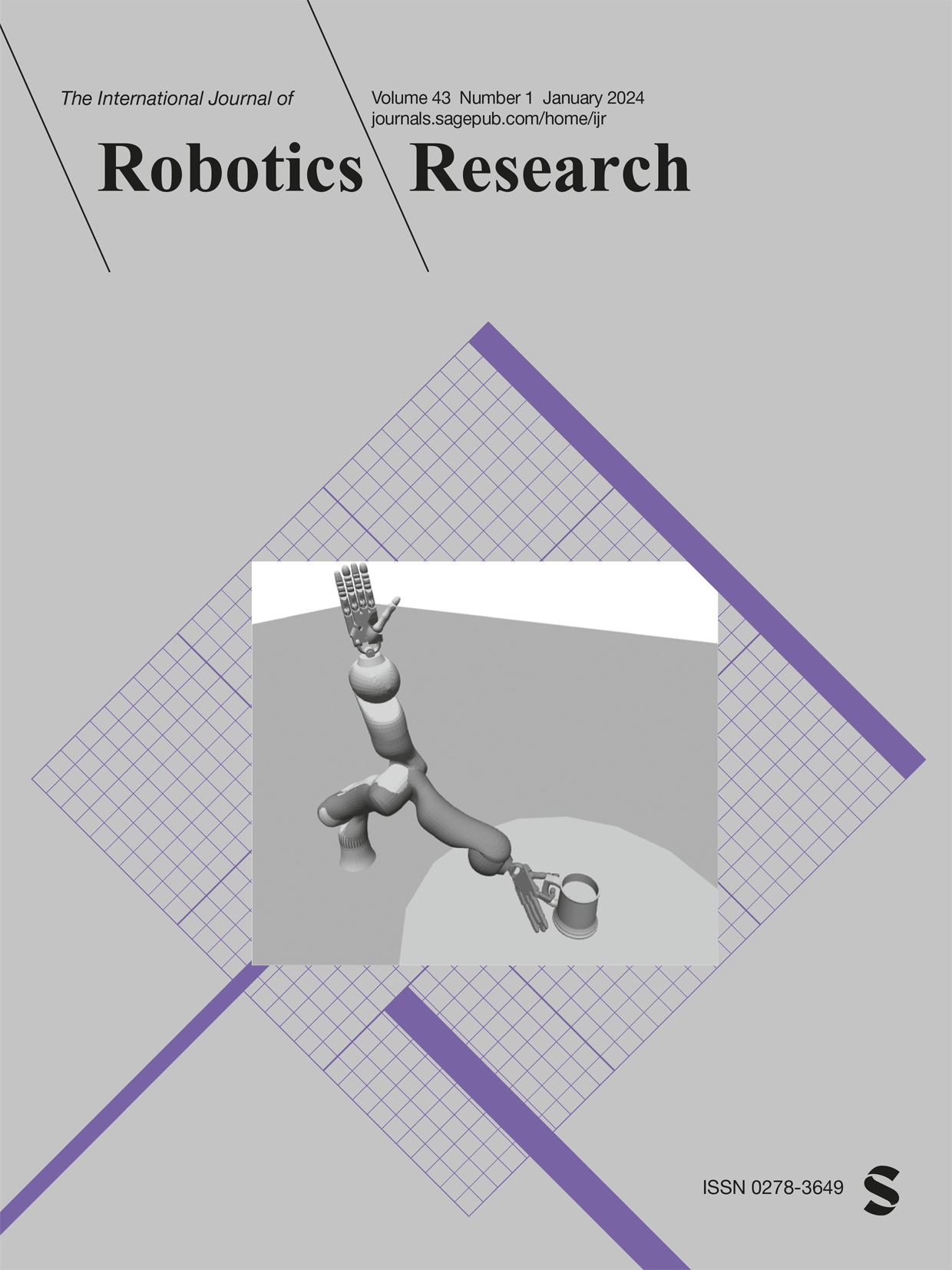从动态游戏中的局部观察中在线和离线学习玩家目标
IF 5
1区 计算机科学
Q1 ROBOTICS
引用次数: 2
摘要
部署到现实世界的机器人必须能够与环境中的其他代理进行交互。动态博弈论提供了一个强大的数学框架来建模的情景,其中代理有个人的目标和相互作用随着时间的推移而演变。然而,这种技术的一个关键限制是,它们需要先验地了解所有玩家的目标。在这项工作中,我们通过提出一种新的方法来解决这个问题,该方法可以从噪声破坏的部分状态观察中学习连续动态游戏中玩家的目标。我们的方法通过将每个参与者的未知成本参数的估计与通过纳什均衡约束的未观察状态和输入的推断相结合来学习目标。通过将过去的状态估计与未来的状态预测相结合,我们的方法适用于后退视界时尚的同时在线学习和预测。我们在几个模拟交通场景中展示了我们的方法,在这些场景中,我们恢复了玩家的偏好,例如期望的行驶速度和避免碰撞的行为。结果表明,我们的方法可靠地从噪声损坏的数据中估计博弈论模型,这些数据与地面真实目标密切匹配,始终优于最先进的方法。本文章由计算机程序翻译,如有差异,请以英文原文为准。
Online and offline learning of player objectives from partial observations in dynamic games
Robots deployed to the real world must be able to interact with other agents in their environment. Dynamic game theory provides a powerful mathematical framework for modeling scenarios in which agents have individual objectives and interactions evolve over time. However, a key limitation of such techniques is that they require a priori knowledge of all players’ objectives. In this work, we address this issue by proposing a novel method for learning players’ objectives in continuous dynamic games from noise-corrupted, partial state observations. Our approach learns objectives by coupling the estimation of unknown cost parameters of each player with inference of unobserved states and inputs through Nash equilibrium constraints. By coupling past state estimates with future state predictions, our approach is amenable to simultaneous online learning and prediction in receding horizon fashion. We demonstrate our method in several simulated traffic scenarios in which we recover players’ preferences, for, e.g. desired travel speed and collision-avoidance behavior. Results show that our method reliably estimates game-theoretic models from noise-corrupted data that closely matches ground-truth objectives, consistently outperforming state-of-the-art approaches.
求助全文
通过发布文献求助,成功后即可免费获取论文全文。
去求助
来源期刊
CiteScore
22.20
自引率
0.00%
发文量
34
审稿时长
6-12 weeks
期刊介绍:
The International Journal of Robotics Research (IJRR) has been a leading peer-reviewed publication in the field for over two decades. It holds the distinction of being the first scholarly journal dedicated to robotics research.
IJRR presents cutting-edge and thought-provoking original research papers, articles, and reviews that delve into groundbreaking trends, technical advancements, and theoretical developments in robotics. Renowned scholars and practitioners contribute to its content, offering their expertise and insights. This journal covers a wide range of topics, going beyond narrow technical advancements to encompass various aspects of robotics.
The primary aim of IJRR is to publish work that has lasting value for the scientific and technological advancement of the field. Only original, robust, and practical research that can serve as a foundation for further progress is considered for publication. The focus is on producing content that will remain valuable and relevant over time.
In summary, IJRR stands as a prestigious publication that drives innovation and knowledge in robotics research.

 求助内容:
求助内容: 应助结果提醒方式:
应助结果提醒方式:


